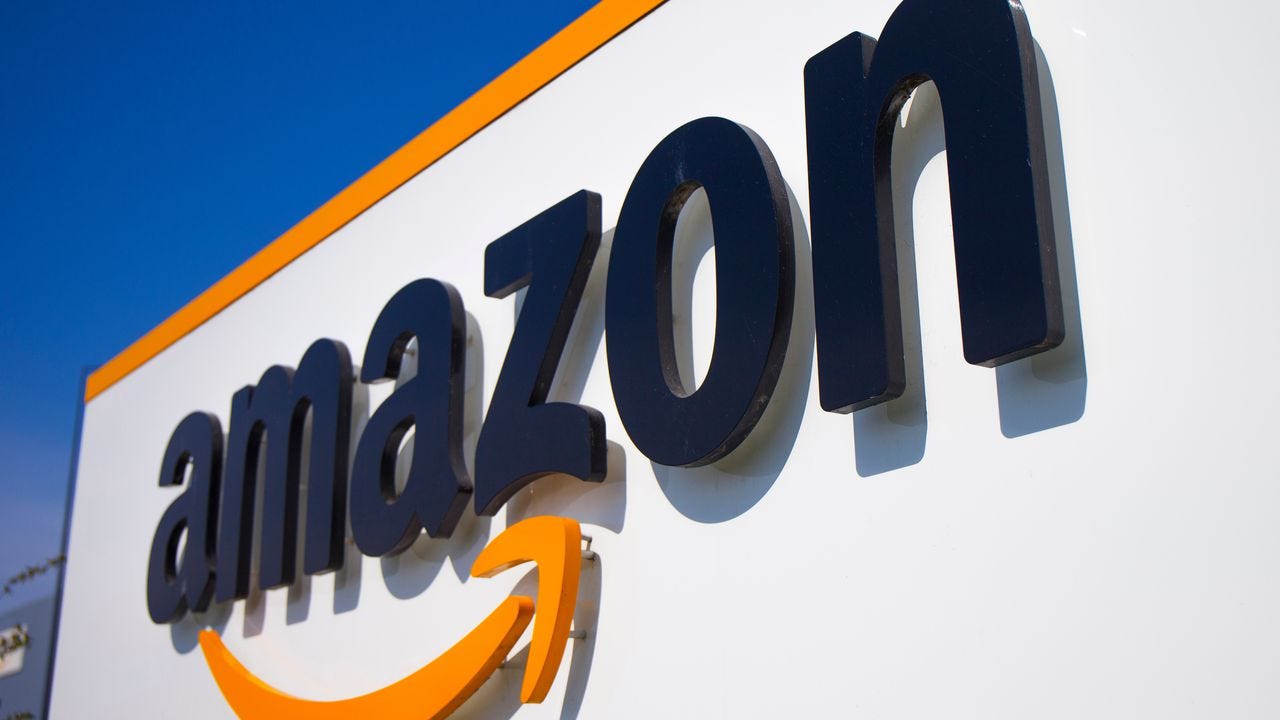health transformation institute (hti)
institute for health strategy, digital health
and continuous health transformation
Joaquim Cardoso MSc
Chief Research and Strategy Officer (CRSO)
May 18, 2023
ONE PAGE SUMMARY
Amazon Clinic is a virtual health service that provides fast treatment for common health conditions such as allergies, asthma, and COVID-19.
- Launched in November, Amazon Clinic is currently available in Ohio and 32 other states.
- The service aims to address the shortage of primary-care health professionals, with more than 83 million Americans living in areas with limited access to primary care.
The U.S. digital health market was valued at approximately $77 billion in 2022 and is expected to continue growing due to improved internet connectivity and increased smartphone usage.
- Amazon Clinic focuses on convenience and quick interactions, targeting individuals who need immediate care for common health concerns.
- The platform treats 25 common health conditions and allows medical information exchange via emails or text messages.
Amazon Clinic does not accept private insurance but can be covered by flexible spending and health savings accounts.
Concerns exist regarding patient privacy and attracting a sustainable patient base, as well as limitations in the range of conditions treated.
The platform primarily appeals to young, healthy individuals with high-deductible health insurance and a preference for digital solutions.
Amazon Clinic’s success will depend on its ability to cater to both heavy users of healthcare services and younger, digitally native individuals.
Amazon Clinic is a part of Amazon’s broader healthcare initiatives, including the acquisition of One Medical and the launch of Amazon Pharmacy.
The closure of Haven, a previous venture by Amazon, Berkshire Hathaway, and JPMorgan Chase, highlights the challenges of disrupting the healthcare industry.
DEEP DIVE

Doctor will text you now: Amazon Clinic telehealth delivers fast treatment for basic illnesses
Cleveland
May. 16, 2023
CLEVELAND, Ohio — Amazon, the company that can get an air fryer to your front porch in a day, is now applying that same efficiency to health care.
The virtual health service Amazon Clinic allows patients to connect with caregivers within hours to help manage common health conditions like allergies, asthma and COVID-19.
Amazon Clinic, in its first months since being launched in November,is available in Ohio and 32 other states.
Amazon hasn’t said how many patients in Ohio are using the services but the new offering has raised questions as it joins a wave of telehealth companies — such as Amwell, Teledoc and Maven — capitalizing on the public’s appetite for telehealth, as well as offering solutions to physician shortages that create long waits for primary care appointment in some parts of the country.
A 2021 report from the Kaiser Family Foundation noted that more than 83 million Americans live in a region where primary-care health professionals are scarce.
Amazon Clinic wants to fill that gap, and also be responsive to the needs of everyday patients- something even some of the nation’s largest hospital systems fail to do, said A Jay Holmgren, an assistant professor of medicine at UC-San Francisco who studies digital technology in health care.
If you just need antibiotics for your sick kid, or a refill for an inhaler, “it might be way more convenient to go through Amazon’s really nice, virtual-first front end,” Holmgren said.
Amazon Clinic is entering a crowded field as the number of independent telehealth platforms offering virtual care visits keeps growing. Companies such as Amwell, Teledoc and Doctors on Demand are already offering similar digital health services in the United States.
The U.S. digital health market was worth about $77 billion in 2022, and is expected to rise, according to the market research and consulting company Grandview Research. Improved internet connectivity and increased smartphone usage is driving the growth, according to Grandview Research.
“
At Amazon, we’re customer obsessed and always working backward from their needs to make their lives better and easier. This is no different in the health care space,” Dr. Nworah Ayogu, Amazon Clinic’s chief medical officer and general manager, said in an email.
About 25% of Americans don’t have a primary care physician, and that number rises to 50% for people under 30, Ayogu said.
“Sometimes you just need a quick interaction with a clinician for a common health concern that can be easily addressed virtually,” Ayogu said. “We’ve thought hard about how to improve this part of the experience as well. That’s why we launched Amazon Clinic.”
However, the telehealth platform has limitations.
It treats a short list of 25 common health conditions. Medical information is exchanges via emails or text messages.
It does not accept private insurance, but costs can be covered by flexible spending and health savings accounts. Customers may be able to use their insurance for prescription medication costs that result from their Amazon Clinic visit.
And there are questions about how well Amazon Clinic guards its clients’ privacy, and if it can attract enough patients to sustain itself.
The telehealth service’s patients are likely to be young, healthy people with high-deductible health insurance that makes it cheaper to pay out of pocket, Holmgren said.
Young people are more likely to turn to their phones to meet any need, including medical advice.
But the young and healthy normally don’t see doctors often. Older people need more health care, but aren’t as comfortable with going online to find it and have medical needs that are greater than the limited menu of ailments that the virtual care website treats.
“(Amazon Clinic has) to sort out how they’re going to thread the needle between those of us who are heavy users, but are more comfortable in a traditional healthcare delivery” and younger digital natives, said Dr. Joseph Kvedar, a past chair of the American Telemedicine Association.
Amazon also might find that healthcare is very different from its core business.
“The supply chain logistics part of healthcare is more complicated than things like books and shaving blades and all the other stuff you can get on their website,” Kvedar said. “Some things may be harder for a consumer products marketing company that hasn’t had experience in health care.”
Kvedar is rooting for Amazon Clinic to shake up traditional health care providers.
“Amazon’s whole company ethos of customer first got me excited that they might actually do something (innovative in health care),” Kvedar said.
Sinus infection, pink eye and urinary tract infections are among the top health conditions that Amazon Clinic treats, according to press reports.
Amazon Clinic is available for adults 18 to 64.
Anyone seeking care begins by choosing a virtual clinic operating in their state. They can see how much a visit will cost and the wait time to connect with a caregiver.
A telehealth visit for cold sores cost up to $35, not including prescriptions. Treatment for sinus infection was $30 per visit, $35 for emergency contraception.
Often, the cost of care is the same or less than the average copay, Amazon Clinic’s Ayogu said.
Patients are asked questions about symptoms and health history. Sometimes, they need to submit photos of affected area of the body, as in a case of cold sores.
A caregiver reviews answers, asks follow-up questions either via email or text, then sends a personalized treatment plan including a prescription if needed. Consultations include follow-up messages between patient and caregiver for up to two weeks after a consultation.
Patients can have their prescription filled at their usual pharmacy, or through Amazon Pharmacy. Amazon Prime users get delivery in two days.
If a patient’s symptoms point to a serious health issue, the patient is told to see their primary care physician and the virtual visit is cancelled.
Amazon Clinic declined to answer questions about how many clients it has served in the United States or Ohio since its start.
Amazon Clinic knows about your foot fungus and birth control. Should you be worried about this information is being shared?
A joint investigation by the health news website STAT and the Markup of 50 direct-to-consumer telehealth companies had good things to say about Amazon Clinic.
While the investigation found that many virtual care websites were sharing sensitive medical information with tech companies, Amazon Clinic was the only telehealth platform that was not sharing data with outside tech giants, the investigation found.
The investigation by STAT and the Markup — which investigates how technology influences society — also emphasized the Health Insurance Portability and Accountability Act, known as HIPAA, wasn’t designed to cover telehealth, leaving gray areas that allow for the legal sharing of health-related data.
Others have questioned how well Amazon Clinic’s privacy policies protect consumers.
When new Amazon Clinic patients sign up, they must agree to a legal form authorizing physicians, pharmacies and other health care providers to disclose email addresses, demographic information and patient files to Amazon, which can use and disclose the information in some situations.
“Information disclosed pursuant to this Authorization may be redisclosed by the recipient, and this redisclosure will no longer be protected by HIPAA,” the online form states.
“What could go wrong?” Washington Post technology columnist Geoffrey Fowler asked facetiously in a column about the telehealth platform’s privacy rules. “There are lots of icky ways Amazon could use your health information: to upsell you on other services, to target marketing for its giant advertising business, or to build out artificial intelligence or patient-risk models.”
Amazon has said that it doesn’t use patient data for purposes that patients have not consented to, and doesn’t sell data, according to news reports.
The launch of a virtual care website is one of several moves that Amazon has made in the last few years to position itself as a major player in health care.
Last year, Amazon paid $3.9 billion for membership-based primary care provider One Medical. The healthcare provider has telehealth and offices in selected cities, including Columbus.
In 2018 Amazon bought the online pharmacy PillPack for $750 million, which it eventually turned into Amazon Pharmacy, according to press reports.
Not all of Amazon’s forays into the health care field have been successful.
Haven, a venture started with the goal of disrupting U.S. health care formed by Amazon, Berkshire Hathaway, and JPMorgan Chase, closed in 2021 less than three years after its launch.
Originally published at https://www.cleveland.com on May 16, 2023.












